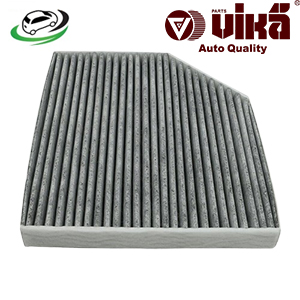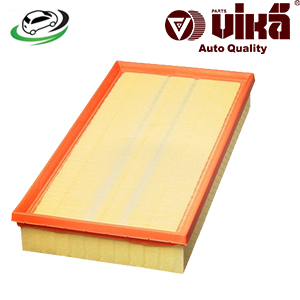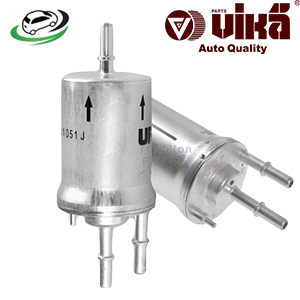-11%
Get Petrol Fuel Filter Assy AUDI A3 II / Volkswagen Golf V/FSI-TFSI Engines 4 Pipe 6Q0201051B
The petrol fuel filter is a critical component of a vehicle’s fuel system, responsible for removing contaminants from the fuel before it reaches the engine. This ensures that the engine operates efficiently and remains protected from potential damage caused by impurities in the fuel. In this comprehensive guide, we will explore the function, types, benefits, maintenance, and common issues associated with petrol fuel filters.
Function of a Petrol Fuel Filter
Contaminant Removal
The primary function of a petrol fuel filter is to remove contaminants from the fuel. These contaminants can include dirt, rust, debris, and other particulates that can accumulate in the fuel tank or enter the fuel system during refueling.
Protecting the Fuel System
By filtering out impurities, the petrol fuel filter protects the fuel injectors, fuel pump, and engine from damage. Clean fuel is essential for the proper functioning of these components, as contaminants can cause blockages, wear, and corrosion.
Ensuring Efficient Combustion
A clean fuel supply ensures that the engine receives the optimal air-fuel mixture for efficient combustion. This leads to better engine performance, fuel efficiency, and reduced emissions.
Types of Petrol Fuel Filters
- Inline Fuel Filters
- Construction: Installed in the fuel line between the fuel tank and the engine.
- Advantages: Easy to access and replace, commonly used in many vehicles.
- Disadvantages: May require periodic inspection and replacement.
- Cartridge Fuel Filters
- Construction: Housed in a canister or housing, with the filter element inside.
- Advantages: Can be replaced without changing the entire housing, often more durable.
- Disadvantages: Can be more complex to replace, requiring specific tools.
- Spin-On Fuel Filters
- Construction: Similar to oil filters, with a canister that screws onto a base.
- Advantages: Easy to replace, commonly used in older vehicles.
- Disadvantages: Becoming less common in modern vehicles.
- In-Tank Fuel Filters
- Construction: Located inside the fuel tank, often part of the fuel pump module.
- Advantages: Long-lasting, designed to be replaced less frequently.
- Disadvantages: More difficult to access and replace, usually requires removal of the fuel tank.
Benefits of High-Quality Petrol Fuel Filters
Improved Engine Performance
High-quality fuel filters ensure that the engine receives clean fuel, which is essential for optimal performance. Clean fuel helps the engine run smoothly, with better acceleration and power output.
Enhanced Fuel Efficiency
By maintaining a clean fuel supply, high-quality fuel filters contribute to better fuel efficiency. The engine can operate more efficiently, consuming less fuel and reducing overall fuel costs.
Reduced Emissions
Clean fuel helps the engine burn fuel more completely and efficiently, resulting in lower emissions. This is beneficial for the environment and helps the vehicle comply with emission regulations.
Extended Engine Life
High-quality fuel filters protect the engine and fuel system components from wear and damage caused by contaminants. This helps to extend the lifespan of the engine and reduces the need for costly repairs.
Preventing Fuel System Failures
By filtering out impurities, high-quality fuel filters help prevent blockages and failures in the fuel system. This ensures reliable operation and reduces the risk of breakdowns.
Maintenance of Petrol Fuel Filters
Regular Inspection
- Visual Checks: Regularly inspect the fuel filter for signs of clogging, damage, or contamination. Look for any signs of fuel leaks around the filter.
- Performance Monitoring: Pay attention to any changes in engine performance, such as reduced power, poor acceleration, or increased fuel consumption, which can indicate a clogged filter.
Replacement Intervals
- Manufacturer’s Recommendations: Follow the vehicle manufacturer’s guidelines for replacing the fuel filter. Replacement intervals can vary depending on the vehicle make and model, but they are typically recommended every 20,000 to 40,000 miles.
- Signs of Wear: Replace the fuel filter if you notice any significant signs of wear, clogging, or contamination. Do not wait for complete failure, as this can affect engine performance and fuel efficiency.
Proper Installation
- Ensure Compatibility: When replacing the fuel filter, ensure that the new filter is compatible with your vehicle’s make and model. Use high-quality filters from reputable manufacturers.
- Follow Instructions: Follow the manufacturer’s instructions for proper installation, ensuring that the filter is securely mounted and connected.
Fuel System Cleaning
- Periodic Cleaning: Consider periodic cleaning of the fuel system to remove any accumulated contaminants and ensure optimal performance. This can include using fuel system cleaners or having a professional service the fuel system.
Common Issues with Petrol Fuel Filters
Clogging and Blockages
- Symptoms: Reduced engine power, poor acceleration, increased fuel consumption, and engine misfires.
- Causes: Accumulation of dirt, debris, and contaminants in the fuel filter can cause clogging and blockages, restricting fuel flow to the engine.
Fuel Leaks
- Symptoms: Visible fuel leaks around the filter, strong smell of gasoline, and reduced fuel pressure.
- Causes: Damaged or improperly installed fuel filters can cause fuel leaks, leading to potential safety hazards and reduced engine performance.
Contamination
- Symptoms: Engine stalling, rough idling, and reduced fuel efficiency.
- Causes: Contaminated fuel or exposure to moisture can introduce impurities into the fuel system, leading to filter clogging and engine performance issues.
Premature Wear
- Symptoms: Frequent need for filter replacement, reduced engine performance, and increased maintenance costs.
- Causes: Low-quality fuel filters or exposure to harsh conditions can lead to premature wear and reduced lifespan of the filter.
Replacement of Petrol Fuel Filters
Tools and Equipment
- Basic Tools: Wrenches, socket sets, screwdrivers, and a drain pan.
- Replacement Fuel Filter: Ensure the new filter is compatible with your vehicle’s make and model.
- Safety Gear: Gloves and safety glasses to protect against fuel exposure.
Steps for Replacement
- Safety First: Ensure the vehicle is parked on a level surface and the engine is turned off. Relieve the fuel system pressure by disconnecting the fuel pump fuse or relay and running the engine until it stalls.
- Locate the Fuel Filter: Identify the location of the fuel filter. It may be in the fuel line, under the vehicle, or inside the fuel tank.
- Remove Old Filter: Disconnect the fuel lines from the old filter, using wrenches or special fuel line disconnect tools. Remove the mounting bolts or clips and carefully remove the old filter.
- Install New Filter: Install the new filter, ensuring it is properly aligned and securely mounted. Reconnect the fuel lines and secure them with clamps or fittings.
- Check for Leaks: Turn on the ignition to pressurize the fuel system, but do not start the engine. Check for any fuel leaks around the new filter.
- Test Drive: Start the engine and take the vehicle for a test drive to ensure proper operation and performance.
Professional Assistance
If you are unfamiliar with vehicle maintenance or the replacement process, it is advisable to seek professional assistance to ensure proper installation and avoid potential issues.
Follow us on Facebook for more parts.



